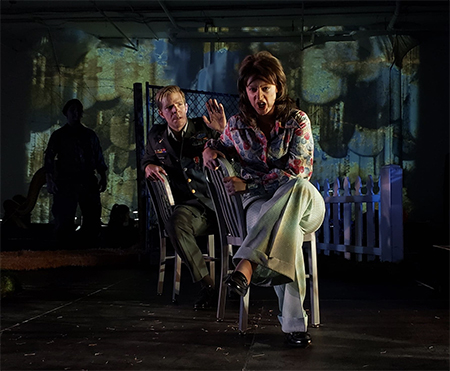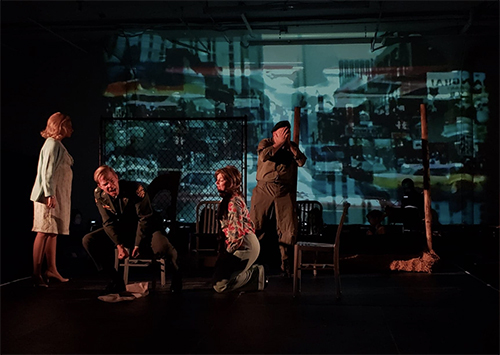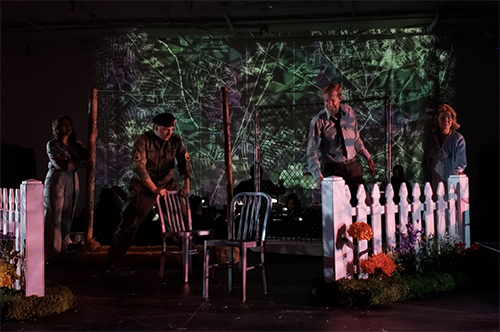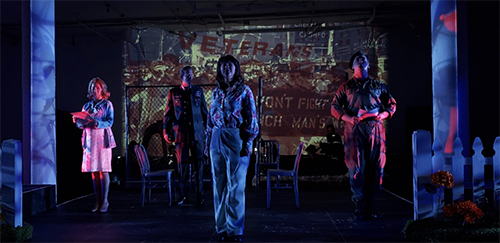by Mike Telin

Based on the book by Tom Philpott, the opera tells the true story of Jim Thompson, the longest-held prisoner of war in U.S. military history, as he tries to re-assimilate into American life after spending nine years behind enemy lines in Vietnam.
Instead of creating a narrative to tell Thompson’s life story, Cipullo creatively strings together a series of remembrances delivered by four characters — younger and older versions of Thompson and his wife Alyce.

While the first half of the performance was uneven — the thick vocal and orchestral writing often rendered the words unintelligible in the expansive space (there were no super titles) — the second half, which provided the excellent cast with more solo opportunities, was truly gripping.
Singing with a clear, handsome sound, guest baritone Gregory Gerbrandt easily moved from being commanding to vulnerable. Cipullo gave him such contrasting lines as “the slutty whore,” and “Everything has changed — who remembers Veterans Day — no Sandy Koufax, no Sandra Dee — there are mini-skirts, Stonewall, Roe vs Wade, and Woodstock,” and “I wanted to see where they live — I forgive you Alyce.”

Ethan Burck and Kailyn Martino showed their acting skills and vocal prowess as the Young Jim and Young Alyce. Martino’s “My Darling Jim” was superb.
Like Cipullo’s libretto, his musical score is continuously moving as his engaging writing underpins the opera’s fractured narrative. Placed behind the small stage, conductor Brian Onderdonk allowed the music to ebb and flow beautifully while the nine-piece chamber orchestra comprised of local musicians were splendid throughout.

As is often the case when a book is turned into a piece of theater, Glory Denied only tells a small part of the family tragedy of Jim and Alyce Thompson. Still, Cipullo’s opera is a cold reminder of the horrors that war inflicts on families, and that the world is not always what we want it to be.
Photos: Brittany Merenda
Published on ClevelandClassical.com November 1, 2018.
Click here for a printable copy of this article



